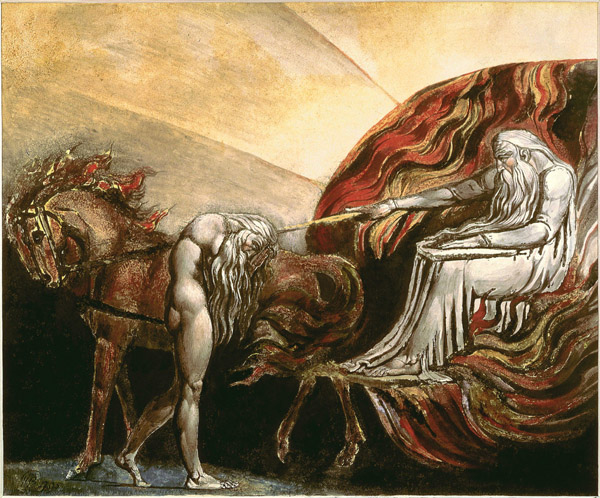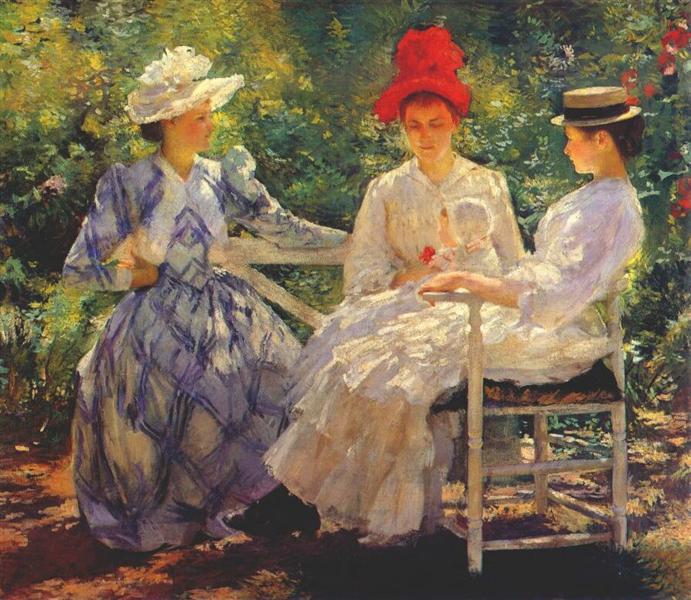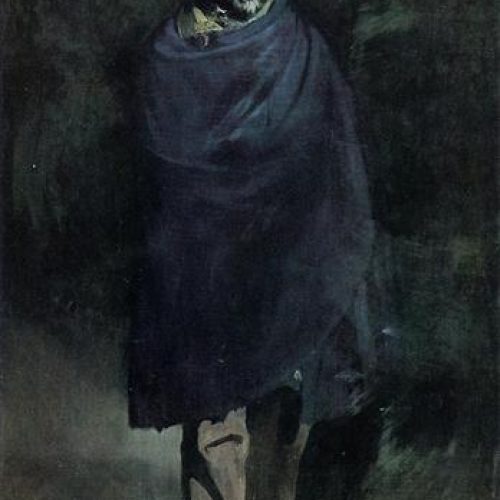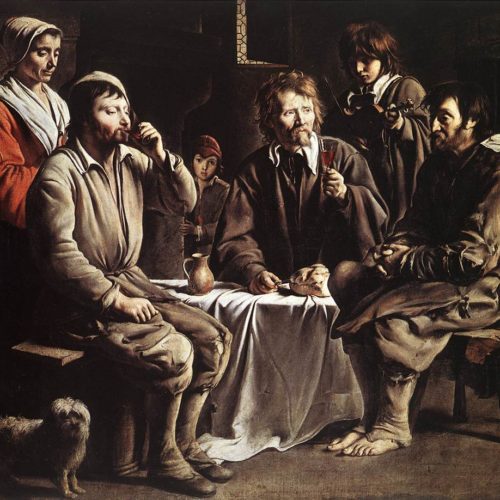As children begin to exercise their growing intentional will, parents know that they have to start imposing limitations for the children’s actions. Putting small things in their mouth, playing with sharp objects, pushing mom and dad’s buttons, all create something novel for children to learn: restraint. As these rules are placed, we are putting forbidden fruit all over for them to be curious about. Because they have not developed impulse control yet, they are bound eat of that fruit and awaken a new form of parent, the judging and conditional parent. Shifting from mediator and guide of impulse to restrictor of them.
This sends a child into a place of confusion, the belly of the whale, where all its previous notions may be proved wrong. They experience a necessary form of unrefined shame that needs to be observed and transformed into a connection with an action and turned to guilt. The experience of this stage has not left us, it has certainly been overwritten, but still it remains deeply embedded in our personality near the very core, in how we understand our intentions and their consequences, what we control, and what we do not.
Inciting Incident
In late infancy a child knows no rules. The child at this point does not need rules because she cannot even break them intentionally. As the child grows, she learns to understand her impulses through the mediation of her parents. This way the world appears to the child as fully intentional. Any action of the child has reaction in the parent, who is essentially the world to the infant. Even what appears as reward and punishment are understood as good and bad intention, all part of the child’s subjectivity.
Soon, the child is able to break some of the rules of that safe, parent-mediated environment. This causes the parents, to react in unforeseen ways. Things seem to be arbitrarily off limits, a rule has been made. The recognition of a rule or higher power that determines it is essentially all it takes to break the child’s previous understanding of the world. Now there are things that reside out of the child’s conception of intention. That is a threatening discovery because it feels like the threat of being abandoned by anything that helped mediate one’s impulses: the parents. Instead, those mediators appear to have limits which one could easily trip over and lose the way back to the earlier bliss.

This is not always a rule made by parents, but “rule” in a general sense. It can be a natural phenomenon of the child leaving the mother for too long to where some barrier was crossed, and one feels abandoned. In this case the rule is implicit in nature. Typically, this is far more dangerous than getting the lesson from the parents which is why it is often the parental role to facilitate that learning in a generally safe environment.
The breaking the rule is recognized as a punishment that followed action, but as a rift in the trusting relationship with one’s caregivers. What had once been a realm of unconscious obedience in a fruitful garden, is now confusion. This is the beginning of the adaptive valley, the belly of the whale in which the child needs to learn to navigate anew.
In the Belly of the Whale
It is the case for all self-evolution that there is a phase of disillusionment at the “paradise” that one used to believe in. There is no way to return to it. This is the belly of the whale in mythological terms. In this particular stage of early childhood, the child grieves the loss of the image of the parents as mediators of impulse. Now they are apparently strict and seem to become indifferent lawmakers. It is too late to reclaim them as the unconditional mediators again; the only way back is through. The choice was made to obey or not. Having chosen not to because of the curiosity of impulse, now one deals with the consequences of recognizing the meaning of ones action.
The breaking of the child’s earlier world view is what allows for transformation. What characterizes the experience is that one is cut away from the usual meaning in life. Initiation rites of many cultures function by harshly severing one’s current attachments. Rites of passage…

“are distinguished by formal, and usually very severe, exercises of severance, whereby the mind is radically cut away from the attitudes, attachments, and life patterns of the stage being left behind. Then follows an interval of more or less extended retirement, during which are enacted rituals designed to introduce the life adventurer to the forms and proper feelings of his new estate, so that when, at last, the time has ripened for the return to the normal world, the initiate will be as good as reborn.”
Joseph Campbell in The Hero with a Thousand Faces
There is no going back, but there is also no map for the journey ahead. Then what do we do? The answer: be receptive. Accommodate new information. You cannot go by your own knowledge so you must observe the way of the world as you are exposed to the chaos. When we become overwhelmed we often shrink and protect ourselves, but being in the belly of the whale means that you cannot protect yourself from the shift in meaning. Now you are observing the world as if it were new, despite its frightening and chaotic appearance. This resembles the strategy of exposure therapy to fear objects and situations.
“One way to consider Initiation is to view it as extended exposure therapy. Exposure therapy is an evidence-based technique used to address a phobia or any high-level anxiety associated with an event, person, activity, situation, or memory. . . Each increasingly more difficult trial in the Initiation phase is the equivalent of a graduated habituation, disconfirming previously held beliefs that such action, such an impossibility is actually possible. The resultant increase in self-efficacy is a powerful Reward in the client-hero’s journey.”
Clive Williams in “The Hero’s Journey: A Mudmap for Change”
What is it that we are exposed to when we first trespass as in this early child stage?
Reemergence of Shame as Unrefined Guilt
This encounter is one that feels like shame. But this is not a real or debilitating shame that one can have about their very nature. This shame is the feeling that one has been judged poorly, that there is a thing that judges outside one’s own standards for the actions one has committed. As adults, we have a name for this shame, it’s called guilt. But until it is worked with, it is not yet recognized as guilt because the connection to the act of trespassing a rule has not yet been made. Now it was not me that deserves judgement, but it is my impulse.
I would call this “creative shame.” This is the shame that motivates our will, rather than paralyzes it. It can easily bring us back to our earliest shame, because it is so similar in flavor, but it has potential to be transformed and controlled because it has connection with trespassing a rule. One may soon recognize that “good or bad me” is actually now “my good or bad impulses” but that will only come after the presentation of the shame brought forth by the recognition that one has voluntarily broken a law. To do that, one must find the way out of the belly of the way.
The Adult Experience of Creative Shame
This stage can replay itself in later life too. For instance, imagine being with your group of friends. The conversation is flowing, as it usually does, facilitating the social impulses of the group’s individuals. During this, assumptions are made and implicit rules for what can be said are made. Perhaps even attitudes are made explicit, but you have the impulse or curiosity to object to these rules. Just like the child you can wander past that line without recognizing it, or you can make that leap on purpose, because something about your impulse does not want to be suppressed any longer.

This is a moment of crisis. Your friends, all of the sudden, turn from people you relax with, to judges who may consider abandoning you (if the group is rather immature). The focus usually goes onto you, and you have the choice to go back on yourself, defend the original status quo, or to open up, go out on a limb to be receptive to what actually happens when you transgress.
Voluntarily encountering this creative shame will allow one to be prepared and perhaps get used to the feeling. Being silent, non-reactive, and observant during trespassing blunders, allows one to learn, and perhaps gain the ability to bring forth a more complex group, and a more honest one. Yet one should not learn to live in the belly of the whale, accepting ostracization, the journey needs to carry on.
We do not enter this underworld so stay ashamed for our impulse, we enter it to test to see what that rule or boundary was for, and if it should be crossed. If we are too obedient, we will never know if our expressions deserve shame, guilt, or voicing and integration into the newly transformed self.



